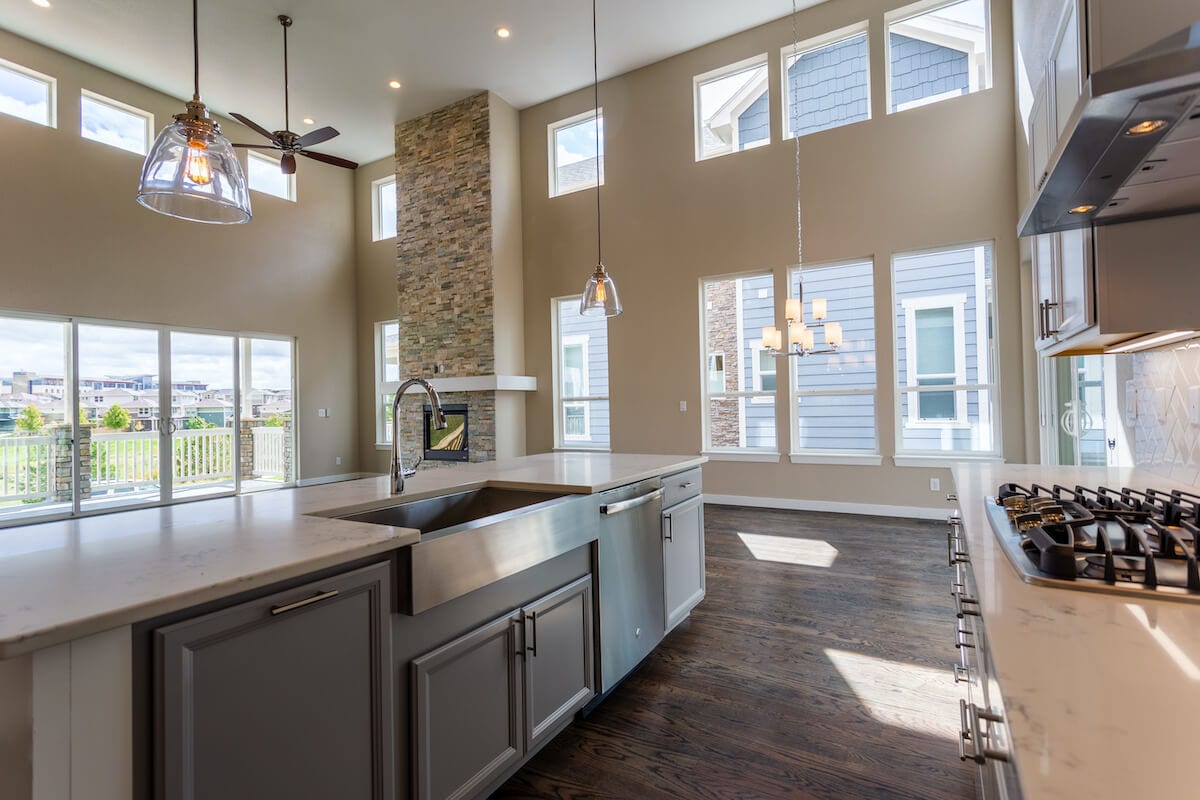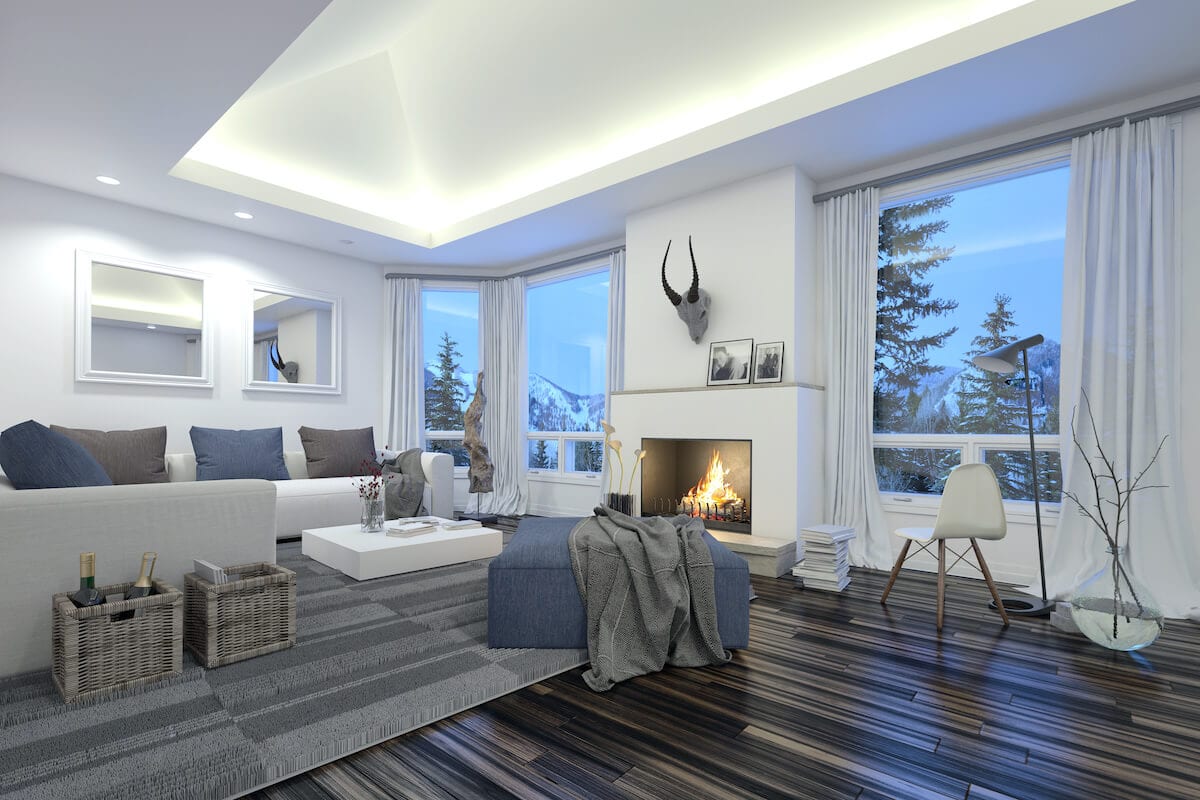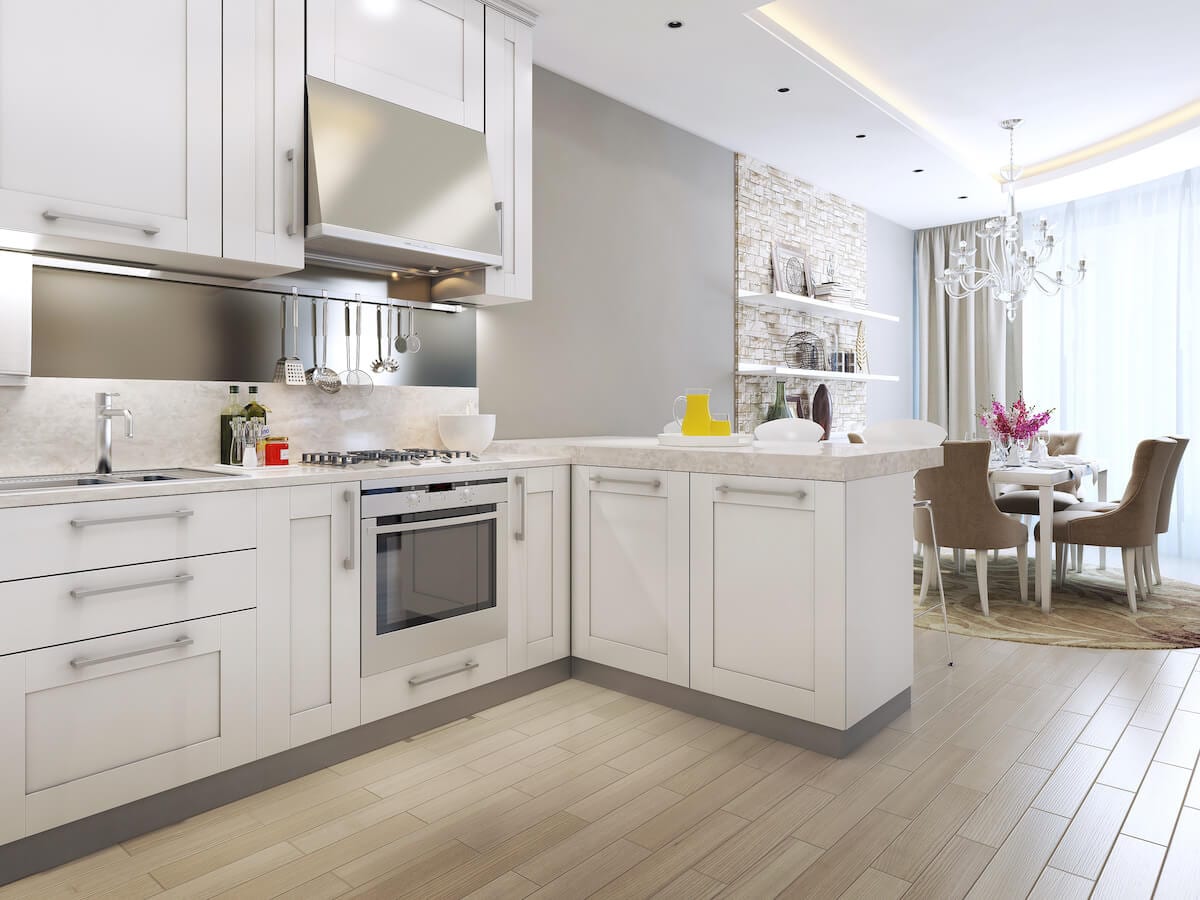
Lighting plays a pivotal role in transforming the ambiance of a home. Not only does it illuminate the space, but it also elevates the aesthetics and functionality of each room. Among the myriad of lighting options available, recessed lighting stands out for its sleek design and versatility. Dive into this comprehensive guide to understand how to seamlessly integrate recessed lighting into your home, enhancing its beauty and purpose.
Recessed lighting is easy to miss, and that’s the whole point. These lights, also known as “can lights” or “downlights,” are recessed into the ceiling. The bulbs may sit flush against the ceiling or peek just out of their fixtures. Recessed lighting can take on just about any lighting job in the house, depending on your needs. They can provide:
Here are some of the most common reasons San Diego homeowners choose recessed lighting.

If you have low ceilings, the last thing you want to do is hang a chandelier that will injure tall guests on the head. Instead of crowding your limited space, recessed lighting gives your ceiling a clean look and stays out of the way.
You don’t want to fill your hallways or a small office with lamps or bulky overhead lighting, especially if you also have low ceilings. Recessed lighting frees up your limited space.
Recessed lighting is often used as “task lighting.” That is, it can give you more light in areas of the house where you regularly work. Some of the most popular places to find recessed lighting are over kitchen countertops and workspaces.
Do you want to make sure all eyes immediately fall upon your collection of artworks, that gorgeous fireplace, a colored accent wall, or some other important area of your home? Recessed lighting can work as your spotlight in order to showcase the things that bring you the most pride.

Have we won you over on the many benefits of recessed lighting? Then, it’s time to start thinking about the installation process. Before you even get started, you’ll need to consider a few things, including:
You have a lot of different choices when it comes to picking out the trim of your recessed light. Trim refers to the casing and outward-facing portion of the light. Trim comes in different styles, including:
After you’ve chosen the style, you can pick out the finish. White trim will allow your lights to blend into your ceiling, or you can make a stylish statement by picking bronze, nickel, black, chrome, or even silver trim. Consider the room’s overall color scheme before you make your choice. Remember that changing trim is a big hassle, so pick a color you can live with for a long time.
When it comes time to begin the fixture installation process, you’ll need to determine whether to use remodel or new construction fixtures. This simply refers to the type of support the lights will use. If you can run the wiring in the space above the ceiling, we recommend new-construction fixtures, which are less expensive than remodel fixtures and usually offer more trim models. If you don’t have access to the space above the ceiling, you’ll have to use remodel fixtures supported by pushing clips into the drywall or plaster of the ceiling.
Most San Diego homeowners choose fixtures between 4 inches and 7 inches in diameter. The size you pick will depend on how much light you want in a room, the height of the ceiling, and how diffuse you want the light to be. It’s important to know that you’ll get more fixture choices if you pick a common fixture size, such as a 6-inch fixture.
Unless you feel comfortable boring holes through joists, splicing wires, and stripping cables, it’s probably best to leave the wiring to an electrician. Make sure to work closely with the electrician so that you can determine how you want to control your recessed lights. For example, do you want them all to come on with the flip of one switch, would you rather control them individually, or do you want them to come on as part of a whole room lighting system?
While it is possible for a dedicated and experienced DIYer to install recessed lighting, this is not a simple task. It will involve changing aspects of your ceiling, performing high-level wiring, and reconstructing your ceiling once the installation is done. We may be biased, but we think that if you want your San Diego home to look its best, then you should consider hiring an experienced and detail-oriented professional to install your recessed lighting. A remodeling and design agency like Kaminskiy can help you choose the right location, size, and trim for your recessed lighting and install it just right to add light and beauty to your home.
Call us today to schedule a lighting or remodeling consultation.
Recessed lighting, also known as “can lights” or “downlights,” are lights that are recessed into the ceiling. The bulbs may sit flush against the ceiling or peek just out of their fixtures.
Homeowners with low ceilings might opt for recessed lighting because it gives the ceiling a clean look, stays out of the way, and avoids potential injuries from hanging fixtures like chandeliers.
“Task lighting” is a type of lighting that provides more light in specific areas of the house where regular activities or tasks take place. It is often found over kitchen countertops and workspaces.
Before installing recessed lighting, one should consider the object or area they want to light, the type of light they prefer (incandescent, fluorescent, halogen, or LED), whether they want dimmable lights, the number of recessed lights needed, and if they want movable and swivel-able lights.
The difference lies in the type of support the lights will use. New construction fixtures are recommended if you can run the wiring above the ceiling and are typically less expensive, offering more trim models. Remodel fixtures are used when there’s no access to the space above the ceiling and are supported by pushing clips into the ceiling’s drywall or plaster.

Kimberly Villa is a recognized expert in the Home Design and Remodeling industry. Her passion for the industry is matched only by her love for sharing insights, new trends, and design ideas. Kimberly’s expertise and enthusiasm shine through in her contributions to the Kaminskiy Design and Remodeling website blog, where she regularly shares valuable information with readers.